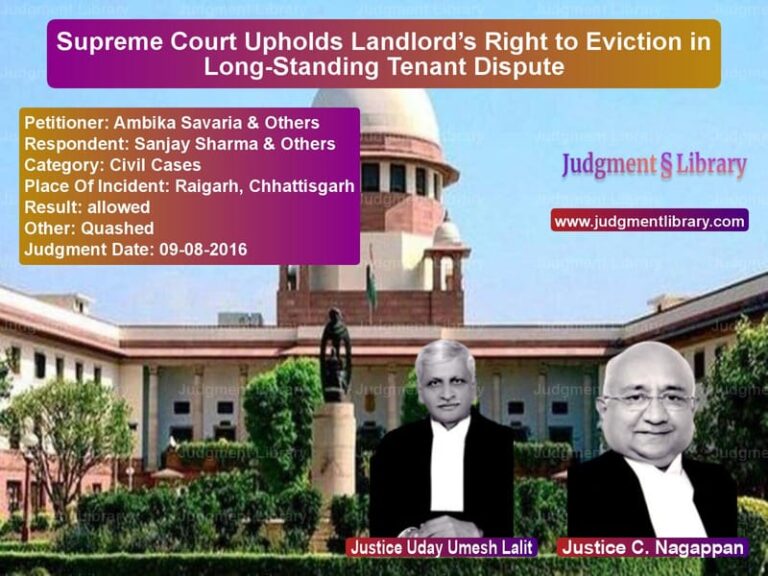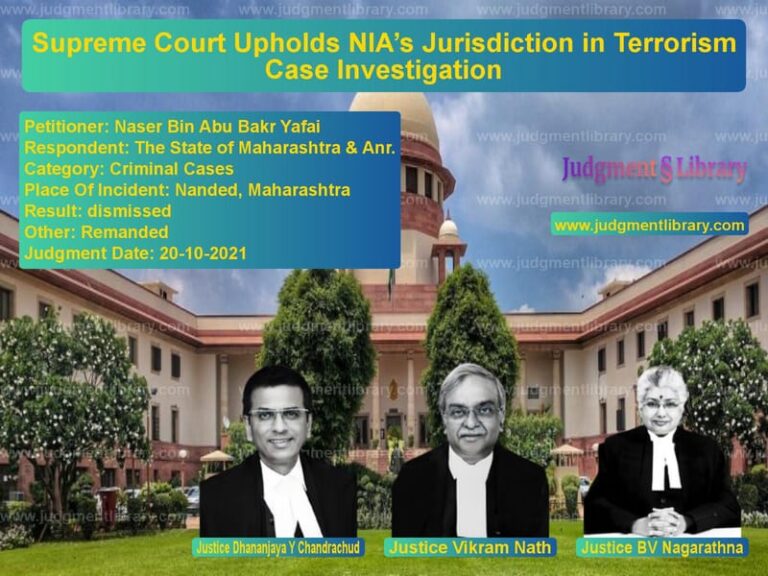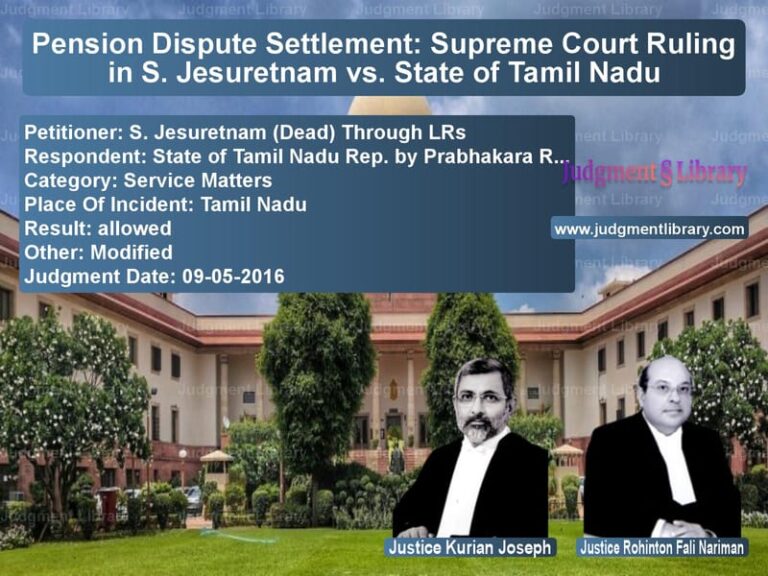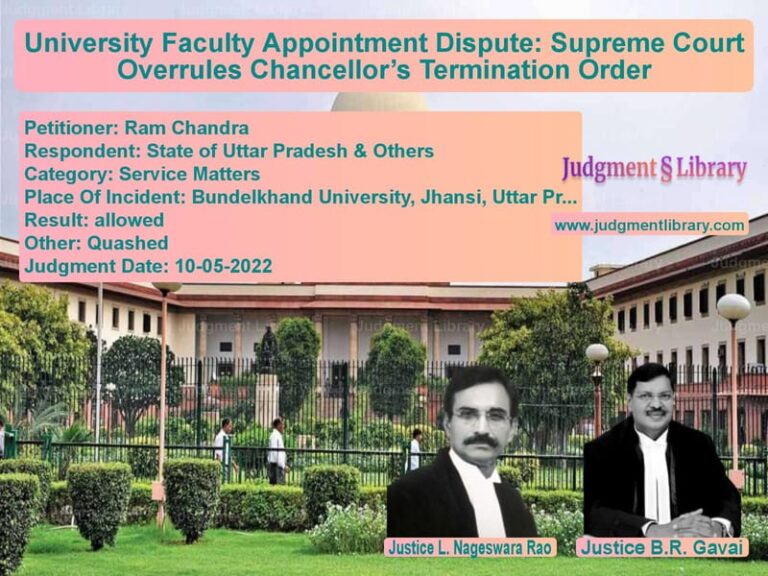Supreme Court Upholds Conviction in Dowry-Related Suicide Case: Key Analysis
The Supreme Court of India recently delivered a significant judgment in the case of Shakuntla Devi versus the State of Uttar Pradesh, upholding the conviction of the appellant under Section 306 of the Indian Penal Code (IPC) for abetment to suicide. The case revolves around the tragic death of a young woman, Kusum, who was allegedly driven to suicide due to relentless dowry demands and harassment by her mother-in-law, Shakuntla Devi. The judgment, dated April 25, 2025, provides a detailed analysis of the evidence and legal principles involved, offering a stark reminder of the devastating consequences of dowry-related harassment.
The case began with the death of Kusum, aged 22, who was married to Rajendra Kumar, the son of the accused-appellant, Shakuntla Devi. The marriage took place on May 14, 1997, and Kusum died on May 4, 1998, at her matrimonial home. The FIR was filed by Kusum’s father, alleging that Shakuntla Devi had subjected Kusum to physical and mental torture for dowry. The FIR specifically mentioned demands for Rs. 25,000 and a golden chain, which were not met, leading to continued abuse.
The Trial Court convicted Shakuntla Devi under Sections 304B (dowry death) and 498A (cruelty by husband or relatives) of the IPC, along with Sections 3 and 4 of the Dowry Prohibition Act. She was sentenced to seven years of rigorous imprisonment. However, the High Court later acquitted her of these charges but convicted her under Section 306 (abetment to suicide) of the IPC, sentencing her to three years of rigorous imprisonment, considering her advanced age.
The Supreme Court, in its judgment, meticulously examined the evidence, particularly the testimony of PW-3, Sandeep Kumar, Kusum’s younger brother. Sandeep Kumar, who was 17 years old at the time, had accompanied Kusum to her matrimonial home and witnessed the events leading to her death. His testimony revealed that on the day of the incident, Shakuntla Devi had abused Kusum over poorly cooked rice and later again in the evening. Shortly after, Kusum consumed poison and died. The Court noted the honesty and consistency in Sandeep Kumar’s account, which lent credibility to the prosecution’s case.
The judgment also highlighted the jurisprudence surrounding Section 306 of the IPC, emphasizing that abetment to suicide requires an active act or omission intended to push the victim into committing suicide. The Court observed that the repeated abuse and dowry demands by Shakuntla Devi created an environment that left Kusum with no choice but to end her life. The Court stated, “The facts of the case make it abundantly clear that the deceased was repeatedly tortured and abused by the accused on account of dowry demand to the extent that the deceased had to return to her parental home seeking refuge.”
The Supreme Court upheld the High Court’s decision, dismissing Shakuntla Devi’s appeal and directing her to surrender within four weeks to serve the remaining sentence. The judgment serves as a poignant reminder of the legal system’s role in addressing dowry-related harassment and its tragic outcomes.
Petitioner Name: Shakuntla Devi.Respondent Name: The State of Uttar Pradesh.Judgment By: Justice Vikram Nath, Justice Sanjay Karol, Justice Sandeep Mehta.Place Of Incident: Uttar Pradesh.Judgment Date: 25-04-2025.Result: dismissed.
Don’t miss out on the full details! Download the complete judgment in PDF format below and gain valuable insights instantly!
Download Judgment: shakuntla-devi-vs-the-state-of-uttar-p-supreme-court-of-india-judgment-dated-25-04-2025.pdf
Directly Download Judgment: Directly download this Judgment
See all petitions in Dowry Cases
See all petitions in Suicide Cases
See all petitions in Domestic Violence
See all petitions in Judgment by Vikram Nath
See all petitions in Judgment by Sanjay Karol
See all petitions in Judgment by Sandeep Mehta
See all petitions in dismissed
See all petitions in supreme court of India judgments April 2025
See all petitions in 2025 judgments
See all posts in Criminal Cases Category
See all allowed petitions in Criminal Cases Category
See all Dismissed petitions in Criminal Cases Category
See all partially allowed petitions in Criminal Cases Category







